IT COMES AT NIGHT Review
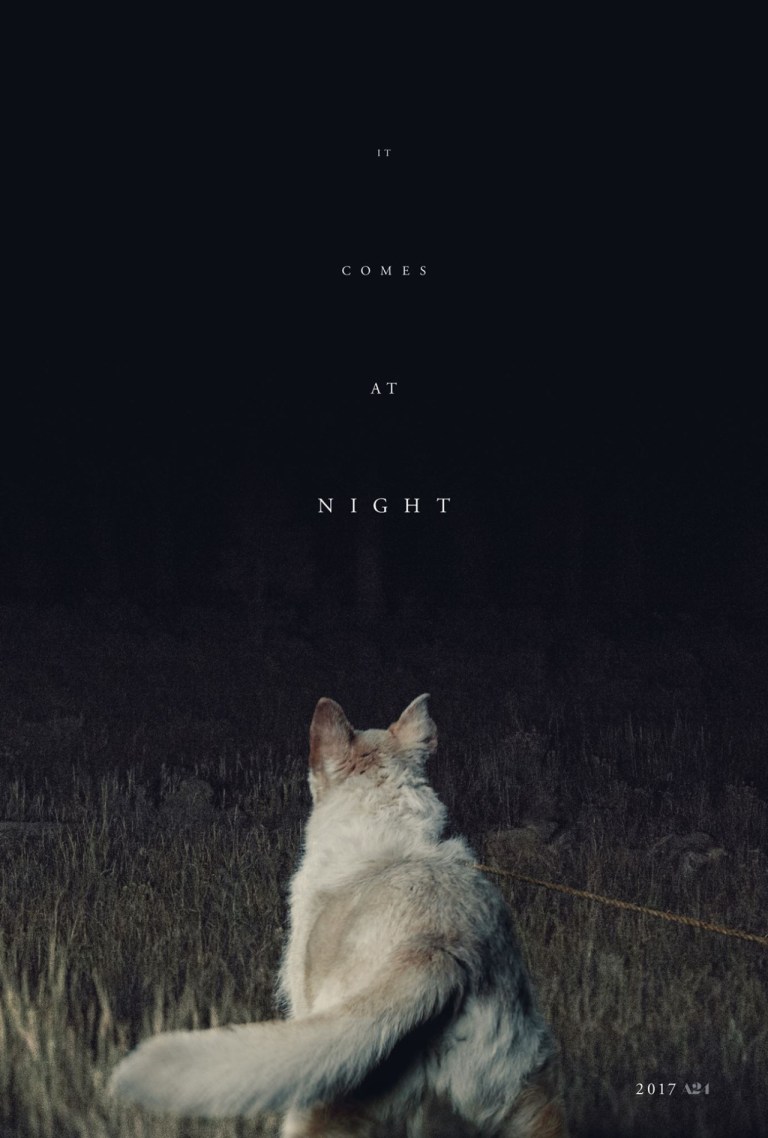
Director: Trey Edward Shults
Genre: Horror, Thriller
Year: 2017
The caveat of horror cinema is that it’s certain to disappoint. Nothing we dream up at night can be successfully translated to the screen. And in an era of internet hype, good films are advertised as masterpieces, and bad films . . . well . . . they get good press too. It’s a trap that I’ve been sure to avoid in the past, keeping my expectations level for UNDER THE SHADOW, THE CONJURING 2, and LIGHTS OUT, equally. But I’ll be the first to admit that I was caught hook, line, and sinker with IT COMES AT NIGHT, director Trey Edward Shults’s follow up to his debut feature, KRISHA, a deeply personal portrayal of domestic turmoil en lieu of mental health conditions, neuroses, and alcoholism. So it should come as no surprise when I tell you that IT COMES AT NIGHT meets the bare minimum necessities of even being called a horror film, falling squarely into the psychological thriller subgenre, but spicing up its trappings with the lore expected of a modern day zombie film. It’s good, occasionally great, but not without its flaws.
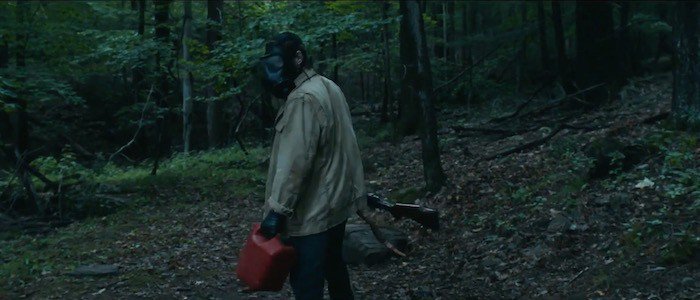
Got my gas mask, got my rifle, got my liter of propane. Time to get LIT!
It’s no secret that KRISHA was among my favorite films of 2016, boasting a directorial aptitude that’s been long missed among modern melodramas. Shults’s intensity is front and center to his filmmaking. Having worked with Terrence Malick’s camera department, he’s an avid practitioner of controlled steadicam work and crisp, natural lighting. In addition to this, his own technical predilections have formed somewhat of an authorial shorthand. His use of creeping zooms, slow tracking shots, extreme close ups, and aspect ratio changes are all central to his cinematic handwriting. For a filmmaker who’s only on his second feature, it’s stunning that one can read into his language already, especially when IT COMES AT NIGHT’s first shot seems to directly riff off of its predecessor’s last frame.
With all that said, I think it’s clear that Shults’s talent is undebatable. But with IT COMES AT NIGHT, he has decided to venture into horror territory, meaning that his proficiency in this specific genre needs to be independently evaluated. Naturally, the expectations were sky high, if only for the fact that it premiered at the 2017 Cannes Film Festival. And for good reason; it is among the most stylish horror film since THE WITCH. We follow a three-person family that lives deep in the woods, played by Joel Edgerton, his wife, Carmen Ejogo, and his son, Christopher Abbott. They just killed grandpa and set him on fire in the backyard. Right, I forgot to mention that there’s a quasi-black plague spoiling their summer getaway. After an encounter with a stranger knocks the family’s routine out of balance, paranoia and fear begin to slip in. It’s simple enough, much like KRISHA’s narrative thrust, but ironically enough, IT COMES AT NIGHT doesn’t carry quite the same dramatic urgency.
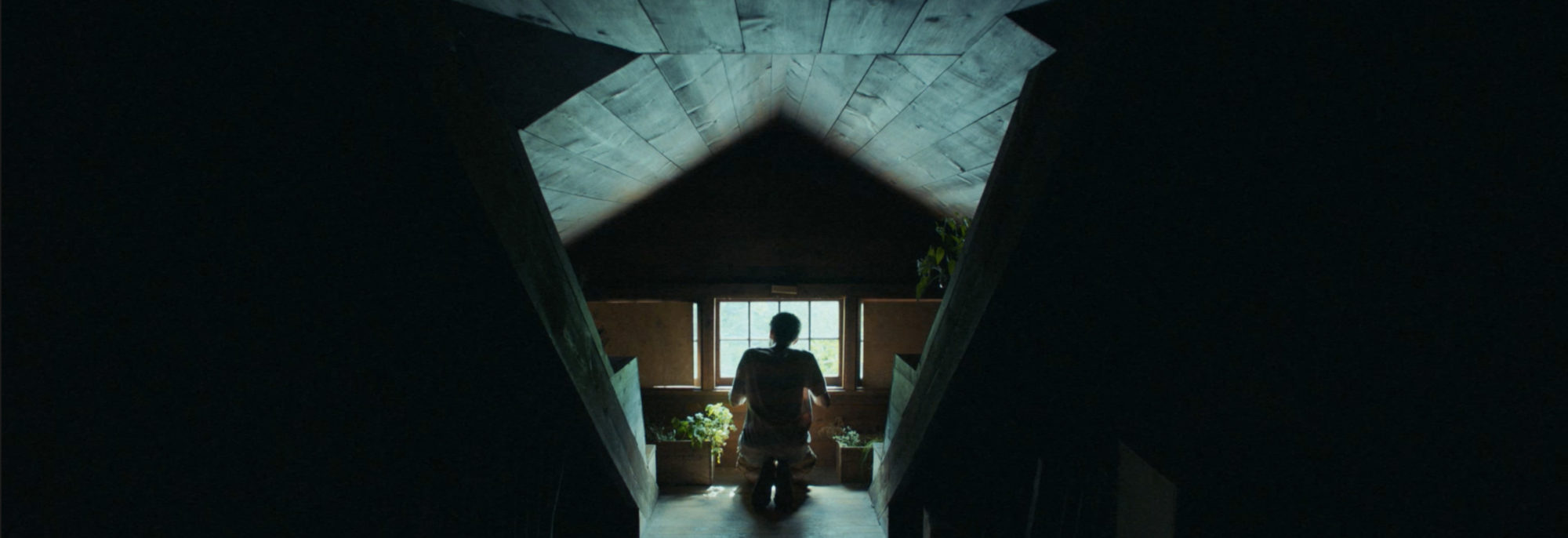
When my inner Wes Anderson makes a horror film
Shults’s compositional eye is uniquely evocative here. Each sequence is beautifully mapped out, each edit considered with acute precision. From Shults’s elegant segues from steadicam to handheld and the geographically imprecise home, IT COMES AT NIGHT boils with a distinct claustrophobia that is deeply affecting. The only critique I can make against Shults’s fantastic aesthetic display is that the film’s technical proficiencies occasionally take precedence over the actual characters, something that KRISHA did much better. No amount of aspect ratio changing, lens swapping, or other technical gimmickry can salvage IT COMES AT NIGHT’s occasionally abandoned storyline.
For a film whose actors I can count on my hands, there is a distinct lack of clear characterization here. I’m willing to accept that Joel Edgerton is a Bear Grylls-level doomsday prepper, and I don’t need any justification for his readiness to kill other human beings; after all, it’s America facing a zombie apocalypse, people can get pretty nuts. What I would like to know is why he’s so cold towards his wife and son? Why is there no visible sign of love in this house? Why is his wife so muted, always in the shadow of her man? There are clear domestic hierarchies at play here that Shults hints at, but never resolves or gives purpose to. It would be fine for me to leave the theatre questioning this family’s fragmented state, if at one point the film would clearly indicate that a rift had at some point occurred. Grandpa dying isn’t enough: everybody’s grandpa dies, and if anything, it brings people closer together.
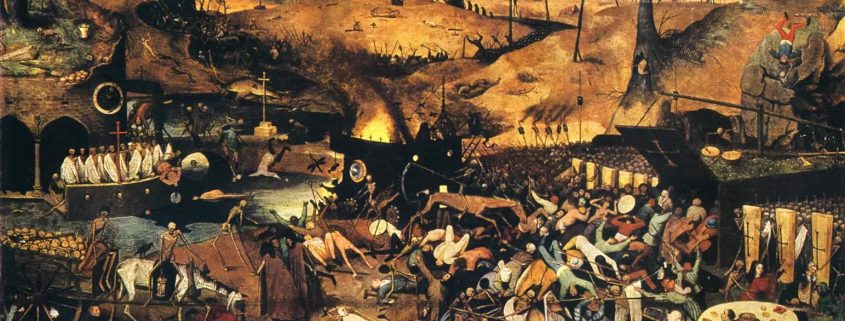
And why is this family wacko enough to own a Hieronymus Bosch painting?
Narratively, IT COMES AT NIGHT admittedly struggles with the rules of its world. A pivotal sequence involving the family’s dog remains relatively unanswered by the end of the film, and the exact consequences of the virus (other than, well, death) are relatively uncertain. What’s more, if animals can be hurt by whatever lurks in the woods, how does this family get away with having goats in their backyard (at least the chickens are tucked away in a coop)? This becomes doubly upsetting when the film doesn’t really find a thematic thesis to its narrative. That isn’t to say Shults misses the mark entirely: I adore the film’s climax. It’s a messy, depressing, and all round cynical portrayal of a child discovering his parent’s hypocrisy, greed, and selfishness. What I don’t understand is how any of this ties together with Shults’s inspiration to write this film after his father passed away from complications due to cancer.
To a degree, IT COMES AT NIGHT operates like the best possible version of an episode of THE WALKING DEAD, prioritizing moral quandaries and ethical dilemmas over spectacle. The showmanship is undeniably impressive to boot, truly registering as yet another entry in a new wave of arthouse horror pictures (something A24 seems to be building a reputation for). I like how messy the violence is, and I love how its propulsive, percussive soundtrack elevates the film’s most gripping moments. But IT COMES AT NIGHT moves with an ebb and flow that’s rather unbecoming of such an experimental horror film. The film’s most mundane moments play out like necessary filler to bring us to the next great set piece, and Shults doesn’t work hard enough to really keep every scene at an emotional high. The aesthetic intensity is there, but narratively, I can comfortably watch Shults’s film knowing what scenes are there for information and which are there to shock me. That’s a trademark common to lesser horror films, something that IT COMES AT NIGHT is certainly not in build, but often falls victim to in execution. Fingers crossed Shults makes another film in this ilk, because he’s certainly got the potential to one day make a new American classic.
Verdict: Recommend


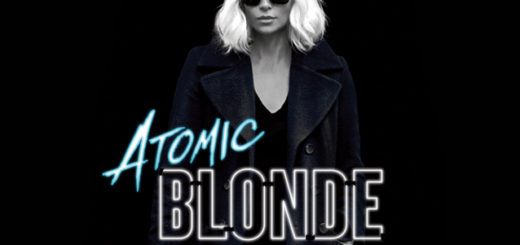
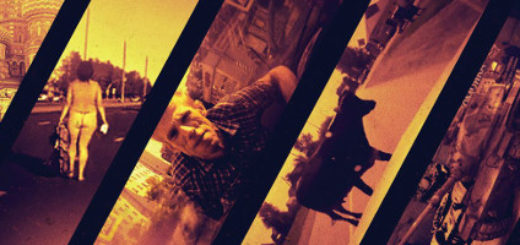
This is a great GREAT addition to a review I did at my blog at harybrake.com on It Comes at Night. Awesome awesome review. Great job!
The painting is not Bosch, but Pieter Bruegel the Elder’s The Triumph of Death